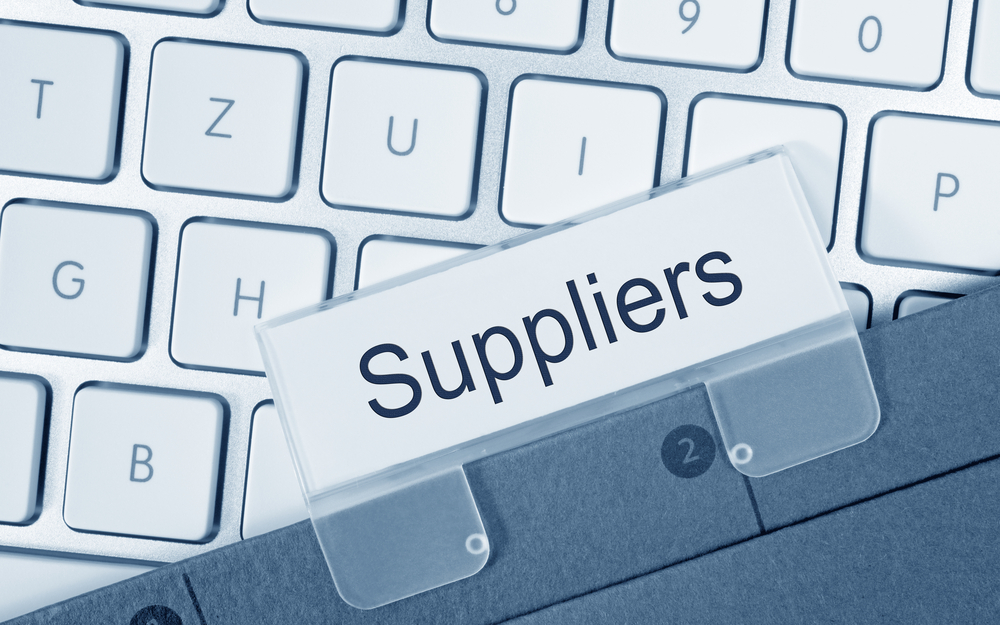If you were to ask people what the most important task a restaurant owner has to deal with, most would say it’s the food or menu. However, that’s not the most important task. Rather, it’s the building of relationships – all kinds of relationships – that are essential to your business. These relationships include suppliers, customers and employees.
By neglecting any one of these supplier relationships, and you hurt your business’ bottom line. Bear in mind that 1/3 of your business’ cost is on the food. If you don’t know where your money is being spent, it can have a negative impact on your restaurant’s growth and its health.
It’s imperative you properly manage your inventory – your business’ service and hospitality all depends on it so your customers have an experience they will always remember. You don’t want to tell your customers they’re unable to have something they really want because you failed to plan for it.
Every restaurant’s lifeline is the food suppliers. The kind of relationship you have with these suppliers will support your daily operations. The rapport you have with these suppliers can make or break your business – just like you need to hire the right manager and chef for it.
5 Key Things Your Business Needs To Ensure Your Supplier Relationship Is Successful
Nurture Your Relationships
A good relationship between a restaurateur and supplier can be beneficial to both entities. The best restaurant owners realize they need to spend their time working on bettering these relationships. Two things come about when you manage your inventory regularly:
- You become a better manager
- You can establish a good pace with suppliers
It’s important you nurture these relationships, so other entities will see you as someone that they should do business with. If they view you as dependable and trustworthy, suppliers will provide you with better deals, speak favorably of you and show you new products they have to offer.
Bear in mind that these relationships can make or break your reputation – be sure your reputation is a positive one.
Ask For Samples and Introductions
If you have a good relationship with a supplier, consider using it to your benefit. If there is a supplier you’re interested in doing business with, and your established supplier knows them, ask them to introduce you to them. When someone can assure others about you, it can do your business a world of good. This is really important when looking to work with small-scale producers who tend to shy away from risky business dealings.
On top of that, suppliers and sales representatives are always on the lookout for new companies to do business with, so consider sharing their name too.
It’s a “You scratch my back; I’ll scratch yours” type of business. And, it works!
While nurturing the relationship, consider asking for samples of their products. You can also ask for customer references to see what they like and don’t like about a product and the company. A relationship like this can be quite lucrative if you have information to go in on.
Work With Local Suppliers When Possible.
If your goal is to work with local producers and supplier or use specially-made ingredients, you need to do some research. Talk with the local farmers in your area or go to any of the local farmer’s markets. You can also speak with market organizers as they know a good deal of information on who you can do business with – those that are reliable and will do what you want them to do.
This kind of relationship can be quite rewarding but be sure you meet with them in person first.
If you really want to work with local entities, get involved with a local food cooperative. These are restaurants who work together and buy in bulk so that it’s easier for suppliers to make their rounds. If no co-ops are operating in your area, be the first entity to set one up by talking to other restaurant owners to see if they’re interested in putting one together.
While you may want to stay local as much as you can, you should still consider the bigger foodservice suppliers for other needs. For example, if you’re buying local chicken, you may be paying more. Save where you can on your commodity products such as flour, salt, sugar, coffee, etc. With these competitive prices, you’ll have more money to create unique foods for your guests to try and enjoy.
Speak With Your Consumers (Via Social Media)
Many food producers have learned that talking with their consumers via social media is boosting demand for their products. Engage with them by giving them something they want to talk about. Show them that you’re interested in their product. Tag suppliers in pictures of food that uses their ingredients, which will get their attention. Take pictures of their farm and/production facilities and showcase them.
The more engagement you have with them, the more willing they are to expand your network.
Share Your Generosity
These relationships are going to help your company’s bottom line, but you need to be generous, so you help theirs too. Be sure to recommend products they offer to other restaurant owners, sharing your experience with them. Their products can give you some inspiration on menu ideas. Find out from guests what they think and share their feedback with the suppliers.
Ask them for some advice when you want to develop a new menu item, which gives them some say in the process. Find out what items they feel some excitement toward. Ask them what their business goals are and how you can help them to achieve them.
Be generous and share your generosity goes a long way in establishing a good relationship with your suppliers. You may find that they give you some advice you never even considered.
Do not ever use your suppliers to further your own needs without helping them to further theirs. You don’t want it to be a one-sided relationship. Collaborate with them and leverage the relationship to ensure it’s beneficial to both of you.



